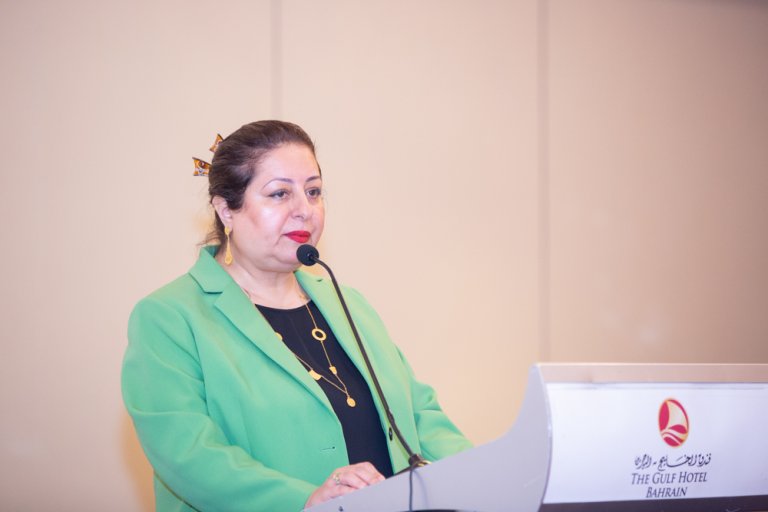Dr. Wasan Shaker Awad, the Dean of the College of Information Technology at Ahlia University, expressed the college’s commitment to fostering innovative education through the debates and workshops. Recognising their positive influence on students’ personal skills, these initiatives also enhance students’ scientific research proficiency, acquaint them with pressing global issues such as the Sustainable Development Goals (SDGs), and provide insights into the impact of technology on society and future challenges in the field.
The College of Information Technology at Ahlia University recently hosted an interactive student debate, held at the Gulf Hotel, which was attended by Professor Abdullah Al-Hawaj, the Founding President and Chairman of the Board of Trustees of Ahlia University, Professor Mansoor Alaali, the University President, a panel of specialists, keynotes and guests’ speakers, researchers, and IT students from various Bahraini universities and schools. The debate centred around the integration of robots in achieving the United Nations SDGs and aimed to promote critical thinking among students and researchers. Distinguished debate judges and experts from Bahrain and abroad participated, sharing their thoughts on future prospects in the technology field.
Sixteen talented students, divided into two teams of eight, engaged in an exchange of arguments and counter-arguments. Both teams substantiated their viewpoints and decisions based on studies, statistics, and recent research pertaining to robot activities and the global impact of artificial intelligence in the context of accomplishing the sustainable development goals.
Despite the numerous advantages offered by robots, the opposing team emphasised the concerns arising from the potential loss of a substantial number of jobs and roles due to the presence of robots, occurring possible crises. They argued that the emergence of new jobs necessitates novel skills, education, and training to adapt to the new jobs requirements, particularly in education, medicine, and business. The opposing team contended that this trend could aggravate unemployment, especially in developing countries heavily reliant on achieving the SDGs.
Notwithstanding the opposing arguments, the debate concluded with the victory of the supporting team who were successfully demonstrated that robots, like any human innovation or advanced industry, have both positive and negative effects.
The winning team emphasised that responsible robot usage depends on the data and values embedded in their systems. As robots are created by humans, it is the quality and utilization of data that determine whether robots contribute to societal progress or pose a threat to it.
Furthermore, team members highlighted the robots’ contributions to the sustainable development and efficient agricultural methods, the generation of renewable energy, and the optimization of solar power plant operations. Additionally, robots were identified as effective contributors to water resource management, mitigation of natural disasters, and the promotion of educational activities.




